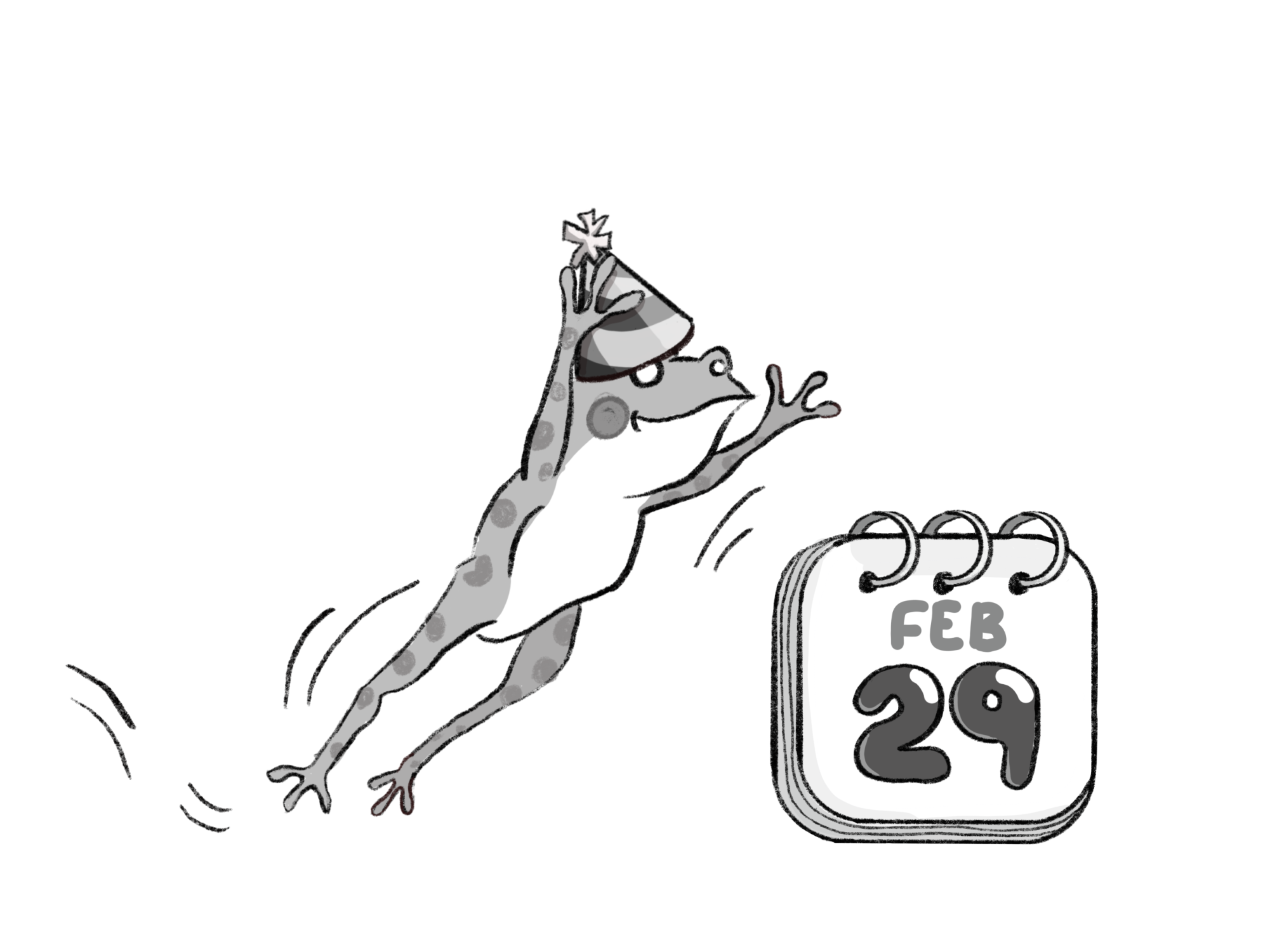On February 29, seven years ago, at Penn Wynne Elementary School, I was walking alongside my friend Janie Silverman ’26, a fellow classmate in Mrs. Cummings’ second-grade class. She turned to me and said, “Today I am turning two!” Given the fact that she stood at about 3’8, the notion of her being an abnormally large two-year-old puzzled me. As she and I took our seats, Mrs. Cummings wished her a happy birthday. Mrs. Cummings explained that February 29 was a very important day—it was a leap day.
To help keep the calendar in line with the solar year, there is a leap year that occurs once every four years. In other words, it takes the Earth around 365.25 days to orbit around the sun. So every four years, that ¼ adds up to a day that is added to the calendar for that year. Without leap days, the calendar would eventually drift off by about five hours, 48 minutes, and 45 seconds more each year. This discrepancy would lead to celebrating our ‘winter’ holidays in summer weather.

So why not add the day to December, the year’s end? Back in the eighth century BC, the Romans followed a ten-month calendar, with January and February appended to the end of their year. February received the least amount of days due to their aversion to winter. But still, there was no leap year on this calendar. Julian Caesar then changed the calendar to line it up with the sun by adding a leap day. Nevertheless, Caesar’s leap day still did not fully account for the differences. In 1582, Pope Gregory XIII created a new calendar—the Gregorian calendar, which we still use today, officially recognizing February 29 as part of the calendar.
Remarkably, one in every 1,461 people are born on Leap Day. While one might consider having a birthday on this day unfortunate, Aliyah Alwyn ’26 said that her leap day birthday is “special to [her]. It’s [her] birthday, and unlike everyone else, it happens once every four years so it’s really unique and really important that [she] cherishes those years.”Silverman shared a similar sentiment, saying that “having a leap year birthday is more special than challenging. It’s something that people remember [her] by and [she] always has an interesting fact [she] can talk about.”
The phenomenon of Leap Day, occurring every four years, assists our calendars to match up with the Earth’s rotation around the sun. From ancient Rome to our modern calendar, an extra day has been added to track time accurately. For those born on February 29, like Silverman and Alwyn, having a Leap Day birthday is special as it is seen as a unique part of who they are, and something to cherish and talk about. So, while Leap Day might seem unusual, it is a reminder that even in our basic routines, there are moments that make life extraordinary.




